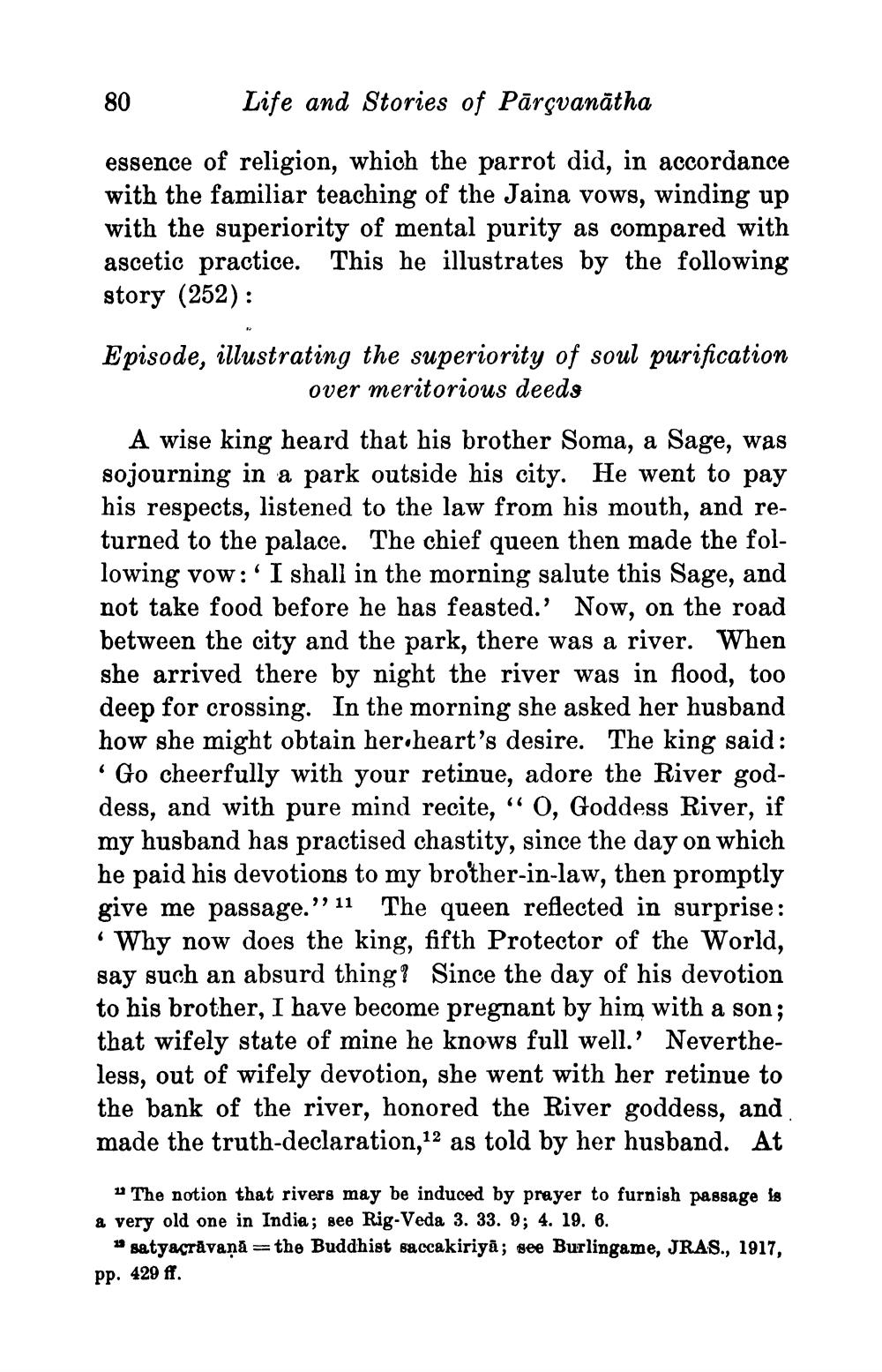________________
80
Life and Stories of Pārçvanātha
essence of religion, which the parrot did, in accordance with the familiar teaching of the Jaina vows, winding up with the superiority of mental purity as compared with ascetic practice. This he illustrates by the following story (252):
Episode, illustrating the superiority of soul purification
over meritorious deeds A wise king heard that his brother Soma, a Sage, was sojourning in a park outside his city. He went to pay his respects, listened to the law from his mouth, and returned to the palace. The chief queen then made the following vow:' I shall in the morning salute this Sage, and not take food before he has feasted.' Now, on the road between the city and the park, there was a river. When she arrived there by night the river was in flood, too deep for crossing. In the morning she asked her husband how she might obtain her heart's desire. The king said: •Go cheerfully with your retinue, adore the River goddess, and with pure mind recite,“ 0, Goddess River, if my husband has practised chastity, since the day on which he paid his devotions to my brother-in-law, then promptly give me passage.” 11 The queen reflected in surprise: • Why now does the king, fifth Protector of the World, say such an absurd thing? Since the day of his devotion to his brother, I have become pregnant by him with a son; that wifely state of mine he knows full well.' Nevertheless, out of wifely devotion, she went with her retinue to the bank of the river, honored the River goddess, and made the truth-declaration,12 as told by her husband. At
u The notion that rivers may be induced by prayer to furnish passage is a very old one in India; see Rig Veda 3. 33. 9; 4. 19. 6.
* satyacrāvanā=the Buddhist saccakiriyā; see Burlingame, JRAS., 1917, pp. 429 ff.




